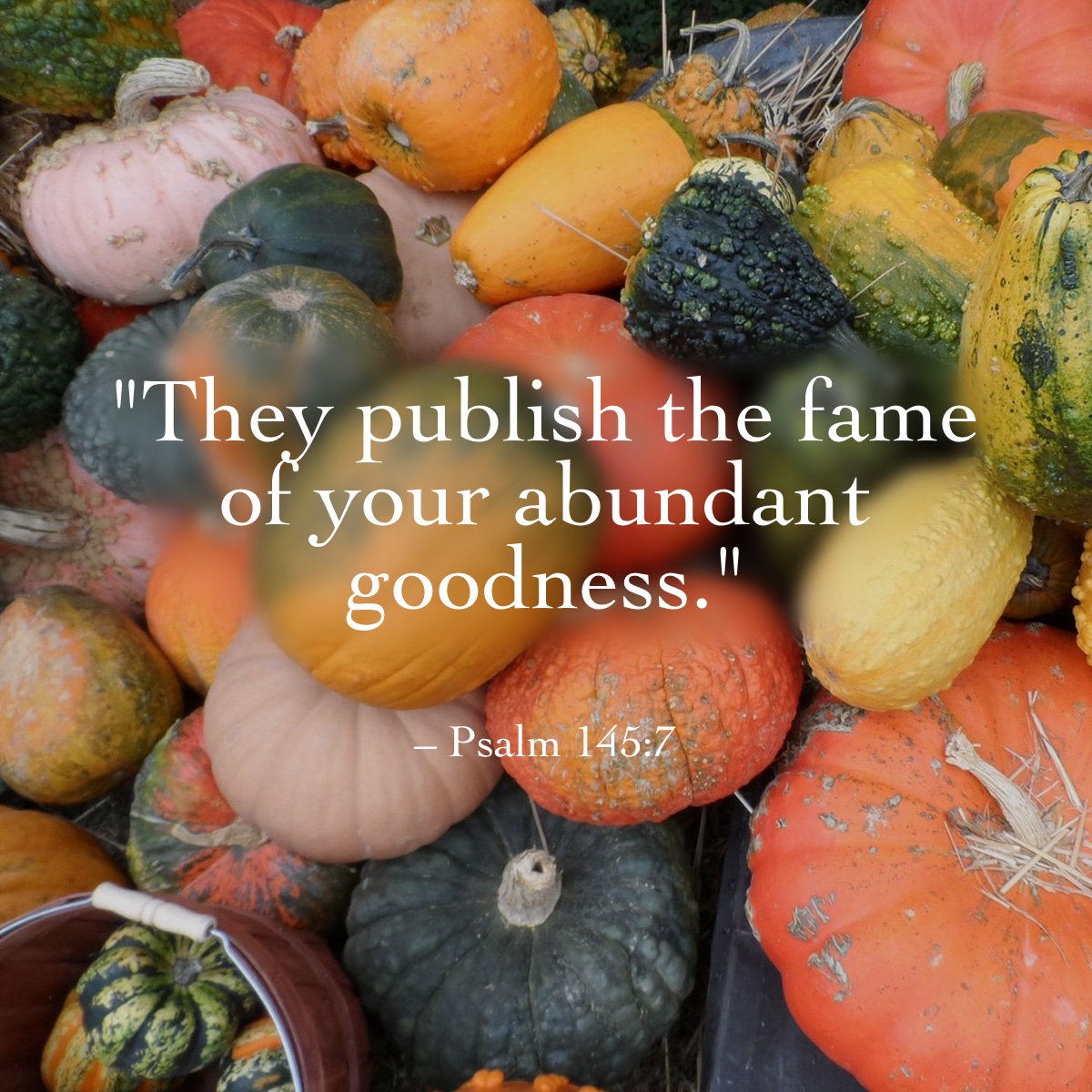 This week in the United States we celebrate Thanksgiving, a holiday that one might admit is focused more on food than gratitude. But as we gather with family and loved ones our hearts should be full of gratitude. The word gratitude comes from Latin word gratus, which means thankful or pleasing. The people and circumstances for which we are thankful are the people and circumstances that bring our lives pleasure: pleasure through blessings, company, kind words, encouragement, and learning experiences. Like the word thankful implies, we should be full of thanks, full of gratitude.
This week in the United States we celebrate Thanksgiving, a holiday that one might admit is focused more on food than gratitude. But as we gather with family and loved ones our hearts should be full of gratitude. The word gratitude comes from Latin word gratus, which means thankful or pleasing. The people and circumstances for which we are thankful are the people and circumstances that bring our lives pleasure: pleasure through blessings, company, kind words, encouragement, and learning experiences. Like the word thankful implies, we should be full of thanks, full of gratitude.
Perhaps we can also say that we should be full of grace. The word grace comes from the same Latin origin as gratitude. After all, the prayer of thanks we pray before a meal is called grace. And God’s grace is a free gift that is pleasing and favourable. Just look at the Thanksgiving day readings. St Paul says, “I give thanks to my God always on your account for the grace of God bestowed on you in Christ Jesus, that in him you were enriched in every way.” He connects gratitude to grace and gift.
What are the gifts God has given you?
Saint Ignatius has us ask this question in his “contemplation to attain love“. We consider the many gifts God pours out onto us endlessly. How aware are we of these gifts? This week is the perfect opportunity to recognise those graces from God in our lives. It was not just Mary who was full of grace. Each one of us is filled to the brim with God’s love and grace. It was all that was necessary for Ignatius. “Give me only your love and your grace. That is enough for me,” he prayed in his famous Suscipe prayer.
Sirach understands this beautiful outpouring of God’s gifts:
And now, bless the God of all,
who has done wondrous things on earth;
Who fosters people’s growth from their mother’s womb,
and fashions them according to his will!
May he grant you joy of heart
and may peace abide among you;
May his goodness toward us endure in Israel
to deliver us in our days.
These images of God’s gifts are abundant images. And so the feast of food on Thanksgiving is actually an apt symbol of God’s abundance. Certain days in the liturgical calendar purposely use the word feast to signify the need for an abundant celebration. Our society has taken for granted abundance. We have easy access to food and consume large tasty meals so often that feasts like Thanksgiving become just another day of eating. The amount and variety of food many enjoy on Thanksgiving ought to remind us that food is gift. The people we break bread with are gift. Our very lives are gift.
Our meal ought to end with a prayer of gratitude for God’s abundant goodness.
Have a happy Thanksgiving and a blessed Advent.









You, Andy, your help and encouragement on my spiritual path together with the great number of friends I have in the virtual, yet very real, Christian community are gifts I value greatly. Thanks Andy but more importantly Thanks be to God. Have a happy Thanksgiving and a blessed Advent
I reiterate your sentiments, Peter.
For various family reasons I am currently unable to be part of a physical worshipping community and consequently value enormously all opportunities for online fellowship.
The joy of my situation is that I interact with and share fellowship with Catholics, Evangelicals, Liberals and all shades in between.
Truly He whose love unites us is greater than all our petty doctrinal differences which can loom so large at times.
Thank you for the comments. I’m glad these posts and your fellow online community is providing relish for you! Let us keep one another in prayer this season of gratitude and hope.